
Crocodile
Crocodile
Crocodile
It’s a crocodile with a big mouth and a rough body! Is it really just a ferocious creature? And there is a hidden secret that makes you want to eat crocodile meat! Let’s take a closer look at crocodiles!
Crocodile Basic Infomation
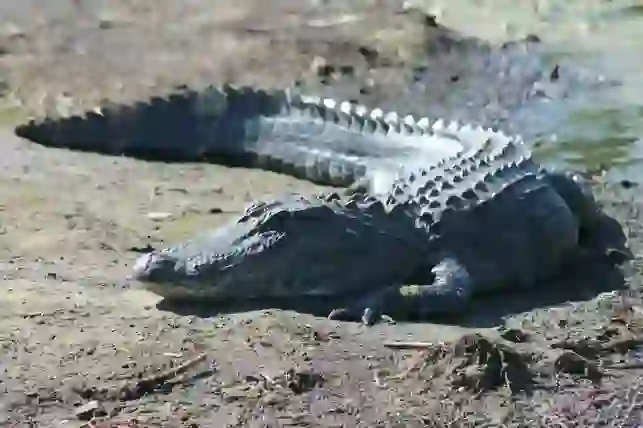
Animalia Chordata Vertebrata Tetrapoda Reptilia Diapsida Archosauromorpha Pseudosuchia Crocodylomorpha Crocodilia (Alligatoridae,Crocodylidae,Gavialidae).
Average length 5m.
Average weight 450㎏.
Habitat. It is found in freshwater and some marine areas from tropical to subtropical regions. Basically, it does not move away from water sources.
Crocodile Q&A

Where does the crocodile get its name?
In English, it is called “crocodile,” but in Japanese, it is called “wani.” This time, we will introduce the origin of why it is called “wani” in Japanese. There are several theories about the origin of the name “wani,” such as the theory that the name “wani” was derived from “wata-nusi,” which means “master of the sea,” or that the name “wani” was derived from the meaning of “warenikuki,” which means “ugly and split.”
There are several theories about the origin of the name “wani,” and it is not clear which one is correct.
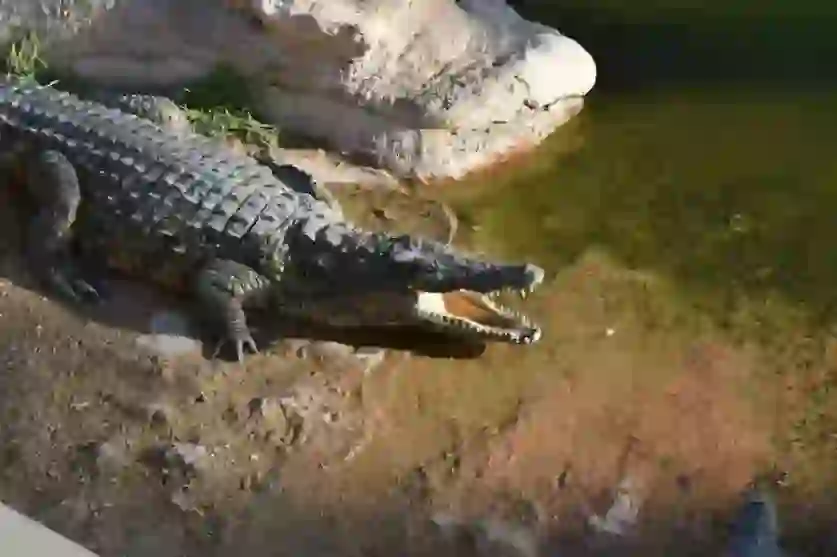
What do crocodiles eat?
I think that crocodiles are strongly associated with the image of being carnivorous and eating animals, but in fact, their main diet is aquatic creatures such as fish, crustaceans, and shellfish.
In addition, it seems that they also prey on reptiles and mammals that approach the waterside where crocodiles live.
Isn’t the reason why crocodiles are strongly associated with the image of eating animals?
And this is not well known, but crocodiles have a habit of eating stones. The reason for eating stones is to crush what they eat in their stomachs or to adjust their weight in the water. The swallowed stones are stored in a sandbag inside their bodies.
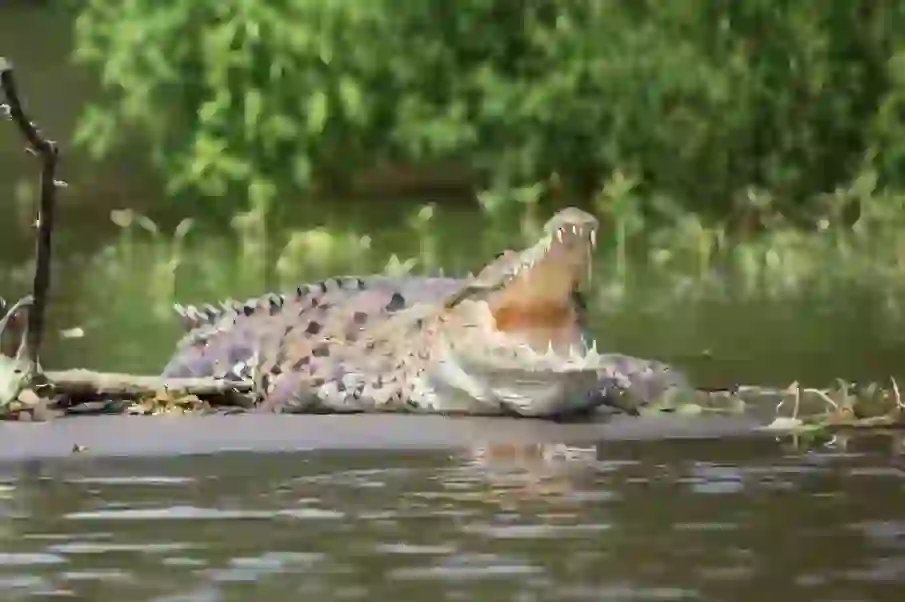
How strong is the bite force of a crocodile?
When it comes to crocodiles, they are known for their distinctive large mouths. Depending on the species, their biting force is said to be about 2 tons.
Even if you say 2 tons, I don’t think you can understand it well, but crocodiles easily crush things that we think are impossible to bite and crush, such as coconuts known as hard nuts, helmets that we wear to protect our heads and bicycles made of iron.
Of course, humans would be bitten and crushed with a snap… I think you won’t encounter them outside of zoos in Japan, but let’s never approach them and run away.
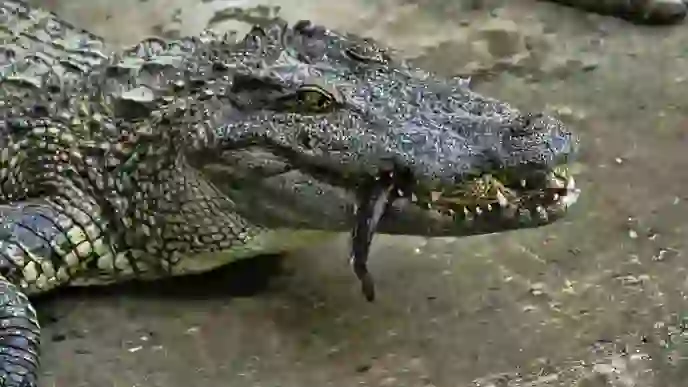
Can't crocodiles move quickly on land?
Crocodiles swim by sticking their limbs close to their bodies and making their bodies wave largely. They live in water normally, so of course they swim fast and sometimes wait for animals that become their food to appear on the water surface.
And it seems that they can jump up so high that their hind legs come out of the water using their large and thick tails.
You might think that crocodiles living in water cannot move quickly on land? But that’s not true at all.
If it’s a short distance, crocodiles can run on land at a speed of 16 km/h. This is faster than humans… You can’t escape from crocodiles whether you’re in water or on land.
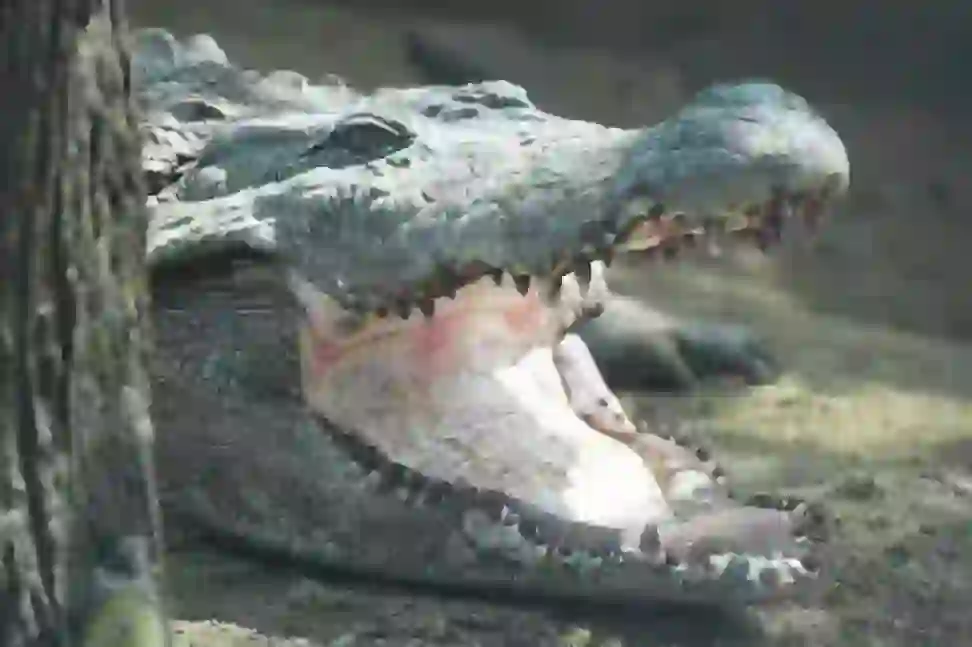
Can you catch a crocodile?
Although it is a crocodile that seems invincible, it can be caught. Crocodiles sometimes enjoy sunbathing on land.
When sunbathing with their mouths open to regulate their body temperature, that is the target.
Approach from behind and climb onto its back and tie its large mouth with a rope.
The biting force (closing force of the mouth) of a crocodile is strong, but the force to open its mouth is not so strong and can be suppressed by human power. However, please do not try this.
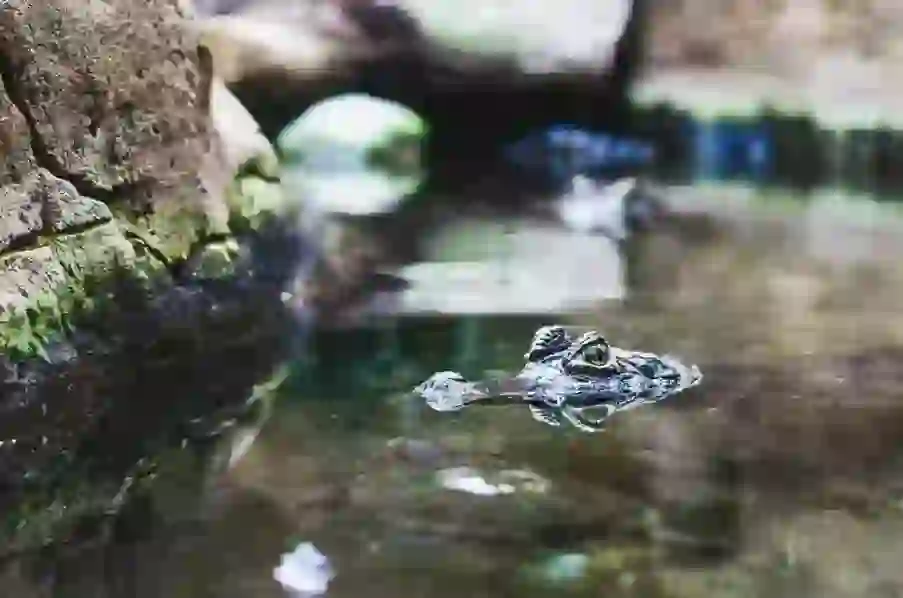
Do crocodiles have natural enemies?
Although crocodiles seem invincible both in water and on land, there are natural enemies of crocodiles in nature. Although Nile crocodiles and saltwater crocodiles are at the top of the food chain and have few natural enemies, they are not born as large predators.
When they were children or when they were small crocodiles such as Australian freshwater crocodiles or spectacled caimans, they were sometimes attacked by large carnivores such as jaguars or pythons.
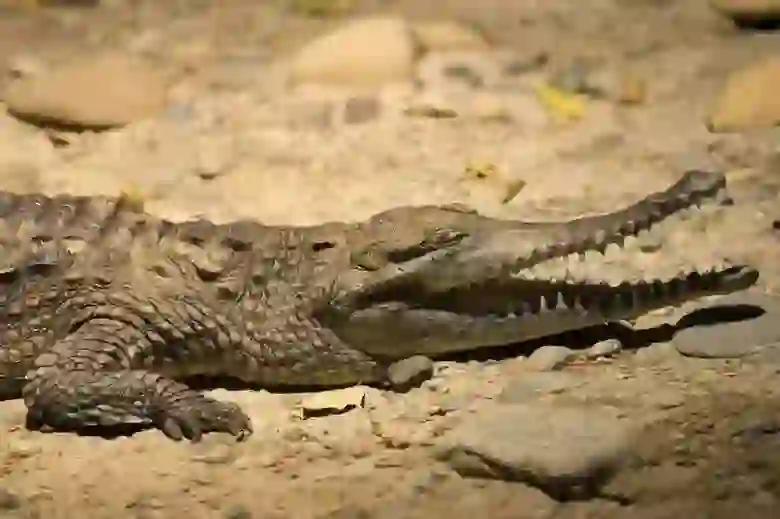
How are crocodiles born?
Crocodiles are born from eggs.
During the breeding season, males invite females with loud calls, but this call is said to be a unique way of calling that feels danger to young crocodiles.
Crocodiles have high communication skills among crocodiles and are said to be the most social reptiles.
When they find a partner during the breeding season, females make nests to lay eggs, and some species protect their children from the moment they are born until they are born and even after they are born.
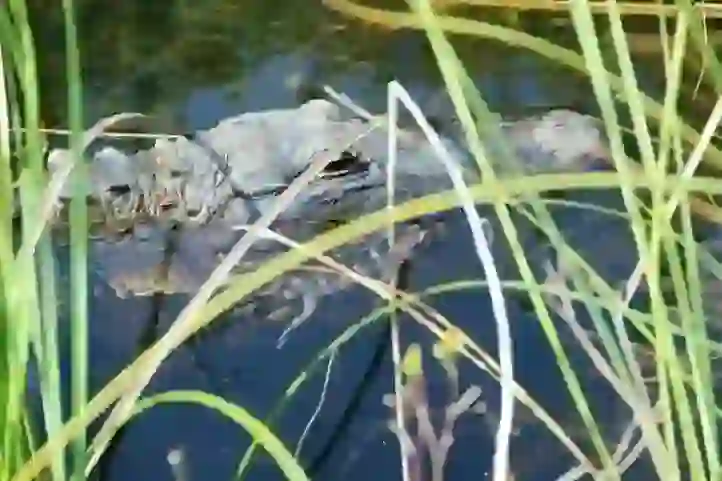
Can you eat crocodiles?
Crocodiles can be eaten.
It is not very popular in Japan because it does not live there, but it is a very healthy and popular food worldwide because it is low in fat, high in protein, and low in calories.
In addition, crocodile meat nutrients include omega-3 fatty acids that prevent lifestyle diseases, beauty and skin effects, diet effects, improved immunity, anemia prevention, fatigue recovery effects, and many other attractive nutrients and effects. It is attracting attention among people with high beauty awareness, health-oriented people, and athletes.
In the United States, it is quite popular as steak and in Australia as crocodile burgers.
The taste of crocodile meat is said to be like chicken meat without any odor. Although crocodile hands are sold at high prices in Japan, they are available for purchase. Why don’t you try it once?
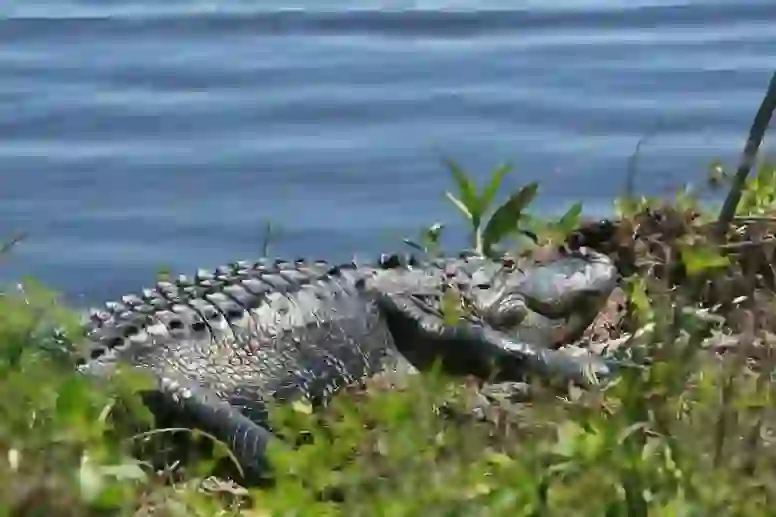
Can I keep a crocodile as a pet?
If you want to keep rare animals, you need to follow the laws established by each country. This time, we will introduce whether it is possible to keep a crocodile at home in Japan. Crocodiles can be kept as pets in Japan.
However, crocodiles are designated as specific dangerous creatures, so they cannot be kept as easily as dogs or cats.
If you want to keep a crocodile as a pet, you need to build a facility based on the designated facility standards and obtain permission from the governor of each prefecture.
The designated facility includes; ・Material of the aquarium (concrete or reinforced glass). ・Thickness of the aquarium (15 cm or more). ・Height of the aquarium. ・Fence for people (with distance specification). ・Microchip and other detailed applications are required.
If you can prepare the designated facility and pass all the applications, you can keep any type of existing crocodile (even 2m long) as a pet.
There is an application fee, which costs about 17,000 yen to 20,000 yen depending on the prefecture.
Also, if you keep a crocodile without permission or make false applications, you will be punished with imprisonment for up to 6 months or a fine of up to 1 million yen. Please make sure to apply properly. For more details, please contact your local animal welfare consultation center.

Would you like to become a part of the 'Animalbook.jp'?
Turn your knowledge into Q&A and share it with the world. ※Publication will be activated after purchase. Let's share information together!
Crocodile Type of List
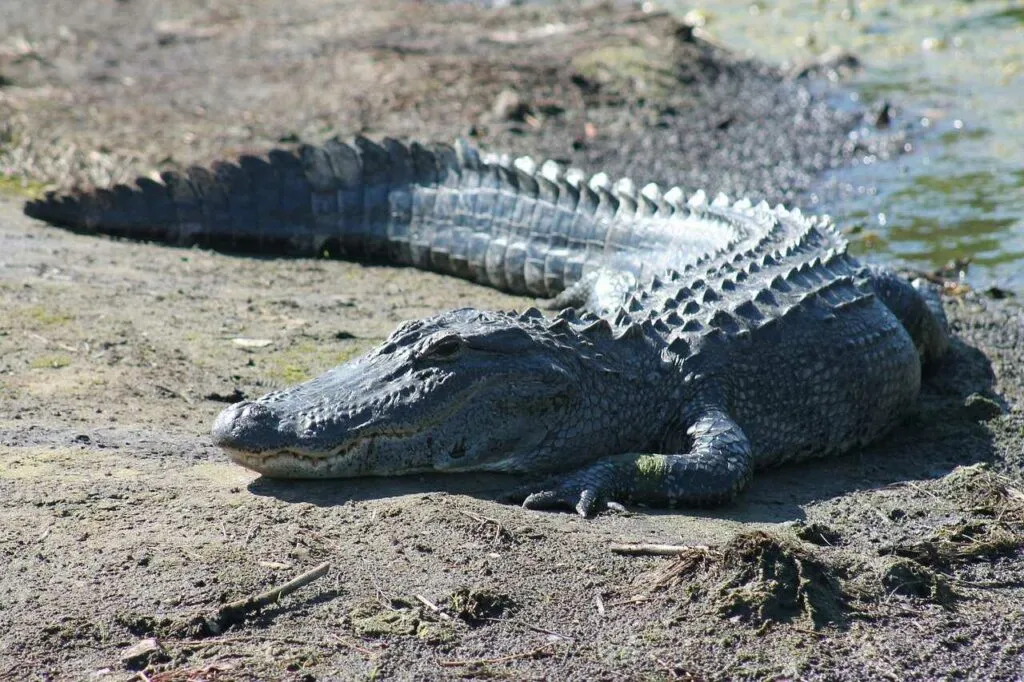
●Crocodylidae. ・African slender-snouted crocodile. ・American Crocodile. ・Saltwater Crocodile. ・Orinoco Crocodile. ・Nile Crocodile. ・Mugger Crocodile. ・Siamese Crocodile. ・Cuban Crocodile. ・Freshwater Crocodile. ・Morelet's Crocodile. ・New Guinea Crocodile. ・Philippine Crocodile. ・Dwarf Crocodile. ・False Gharial.
●Alligatoridae. ・American Alligator. ・Spectacled Caiman. ・Yacare Caiman. ・Broad-snouted Caiman. ・Black Caiman. ・Cuvier's Dwarf Caiman. ・Smooth-fronted Caiman. ●Gavialidae. ・Gharial.
Information
Congratulations! You are the first commenter!

Create Your Favorite List!
Crocodile
Save the animals you love! Build your own list to quickly revisit your favorites later.

Would you like to leave a comment?
※Please note: This is for the purchase of rights to post comments within the article.
Find Your Favorites!
Our shop offers a unique and attractive selection of goods themed around various animals.
Crocodile References

- ウィキペディアフリー百科事典 ワニ https://ja.wikipedia.org/wiki/ワニ#食性・天敵・生態
- 生き物係-ikimonokakari- ワニ https://soyat-info.com/crocodile-type-and-size-6377
- 日本事典 ワニ・鰐 http://www.nihonjiten.com/data/46586.html
- よみもの ワニ肉の栄養とは?3つのおいしいクロコダイルミートの食べ方を紹介! https://meat21.com/blog/2019/12/05/wani20191205/#:~:text=そもそもワニって食べ,られているそうです。
- ごりぶろ 【ワニをペットにしたい】値段や飼育方法、最小サイズについて https://goribro.tokyo/2018/10/24/507/
- ごりぶろ 【画像あり】ワニの種類一覧と特徴や違い・大きさまとめ https://goribro.tokyo/2018/11/11/722/
Crocodile Introduction of media used
出典:https://pixabay.com/videos/id-13022/

出典:https://pixabay.com/images/id-4489292/

出典:https://unsplash.com/photos/okRmopRhMNE

出典:https://pixabay.com/images/id-2293232/

出典:https://pixabay.com/images/id-4833806/

出典:https://unsplash.com/photos/cIU4jIZDOmI

出典:https://unsplash.com/photos/xSSx0yS2lnk

出典:https://pixabay.com/images/id-5555821/
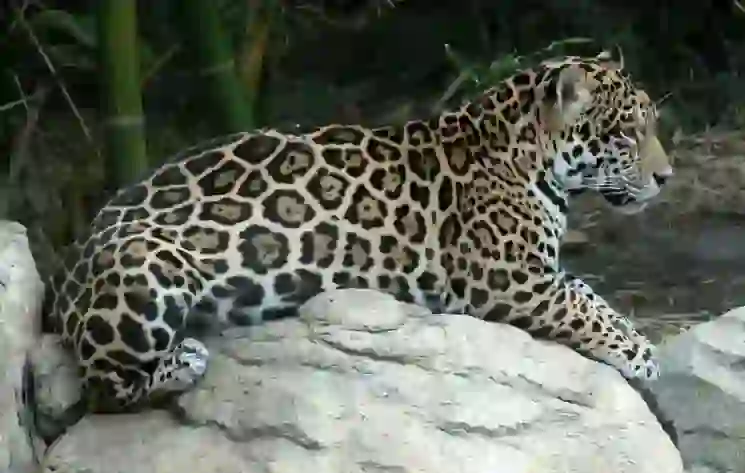
enemy
出典:https://pixabay.com/images/id-935229/
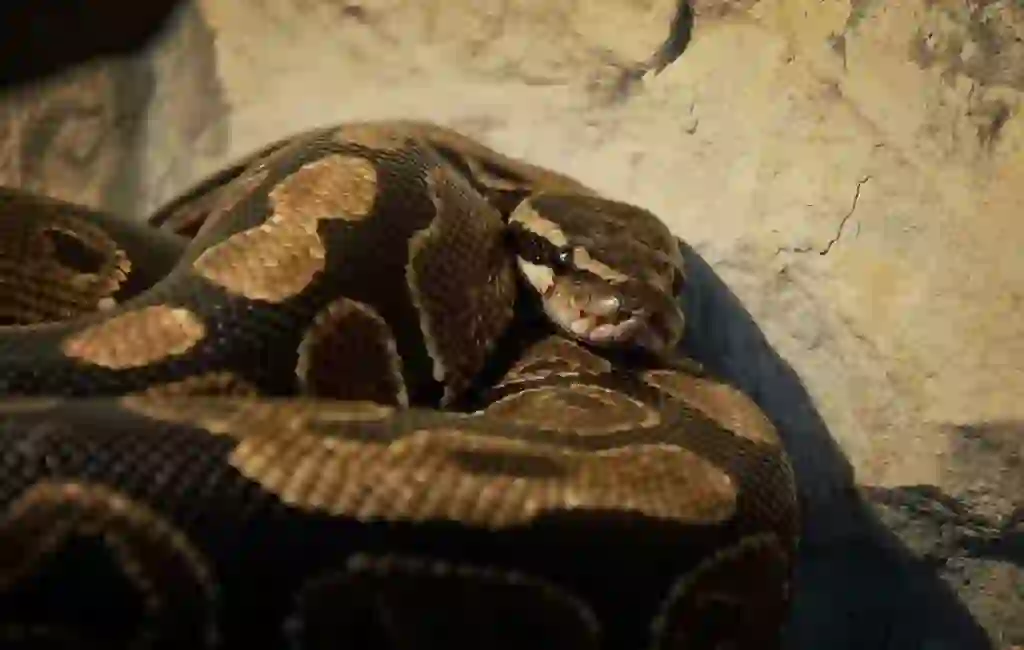
enemy
出典:https://pixabay.com/images/id-1538553/

出典:https://unsplash.com/photos/8JKqHKqUVo8

出典:https://pixabay.com/images/id-3220627/
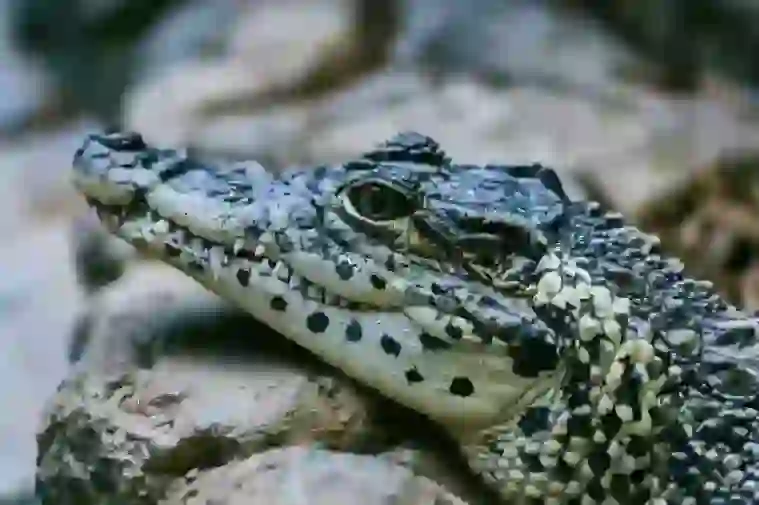
出典:https://unsplash.com/photos/CY7STZZmB40

Help Enrich Our Animalbook.jp with Your Media!
We are constantly looking to expand and enrich our Animalbook.jp with amazing photos and videos of animals. If you have any media that you'd like to share, please contribute and help us showcase the beauty and diversity of the animal kingdom. Your submissions will be credited and featured in our encyclopedia, reaching a wide audience of animal lovers.


















